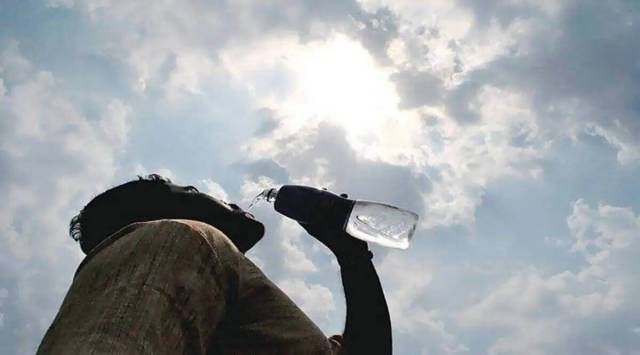- India
- International
A climate scientist writes: With record-breaking heatwaves, India is sizzling. It is time to act
Extreme temperatures threaten public health, the environment and the economy. Right strategies must be put in place
 India has experienced some of the hottest summers on record in recent years.
India has experienced some of the hottest summers on record in recent years.Heat waves have become a major concern for India this year. The scorching summer heat has started prematurely, as per the recent IMD reports. If the record temperatures of the recent past are any indication, the heat wave is likely to become more intense. Rising temperatures lead to several health problems, from dehydration and heat exhaustion to more severe conditions like heatstroke. They also affect the economy and the environment.
India has experienced some of the hottest summers on record in recent years. In May 2016, Phalodi in Rajasthan registered 51 degrees Celsius, the highest temperature ever recorded in the country. In 2021, India saw its hottest day on May 22, with the temperature touching 48 degrees Celsius in Barmer, also in Rajasthan. In 2022, Jaipur experienced a severe heatwave. Rajasthan’s capital recorded 45 degrees Celsius in April – a record for the city for the month. Delhi, Agra, Pilani and Rohtak are among the well-known hot cities in India, where temperatures, of late, have gone up to 43 degrees Celsius in early summer.
This is because climate change is causing a rise in global temperatures. As the planet heats up, it leads to more extreme weather events, such as heat waves. Its geography makes India particularly vulnerable to these events.
The impact of heat waves on human health is significant. Heat-related illnesses, such as heat exhaustion and heatstroke, are becoming more common, particularly among vulnerable groups such as the elderly, children, and outdoor workers. In addition, heat waves can exacerbate existing health problems, such as respiratory and cardiovascular diseases.
The impact of rising temperatures also has an impact on the environment. One of the biggest problems is the depletion of water resources. Water sources are drying up as temperatures rise, leading to crises in many parts of the country. This, in turn, leads to agricultural problems, with crops failing and farmers struggling to make a living. Given that around 40 per cent of India’s population is engaged in agriculture, this is a significant concern. Reports are already coming from Punjab and Western Uttar Pradesh that the early heatwave has affected the growth of wheat crops and is expected to negatively affect the crop to the tune of 20 per cent.

Another problem caused by rising temperatures is air pollution. As people try to keep cool, they use more air conditioning, increasing electricity use. This leads to an increase in the use of fossil fuels, which significantly contributes to air pollution. The combination of high temperatures and air pollution can be hazardous for people with respiratory problems.
The healthcare costs associated with heat-related illnesses can be significant, particularly for vulnerable groups who may not have access to affordable healthcare. In addition, heat waves can lead to a decrease in worker productivity, which can impact economic growth.
What can be done to deal with such problems? One solution is to increase public awareness. People need to be educated about the impact of rising temperatures on their health, the environment, and the economy. This can be done through public campaigns, schools, and the media.
Another solution is to increase the use of renewable energy. India has already made significant progress in this area. The country registered the highest year-on-year growth in renewable energy, of nearly 10 per cent, in 2022. However, much remains to be done. The government could incentivise individuals and businesses to invest in renewable energy, such as solar panels. This would help reduce the impact of rising temperatures, create new jobs, and stimulate economic growth.
Improving water management is also essential. This could include introducing more efficient irrigation systems, better rainwater harvesting, and using recycled water for non-potable purposes. This would help to conserve water resources and reduce the impact of rising temperatures on agriculture.
Finally, investing in infrastructure that can cope with extreme temperatures is essential. This could include the construction of roads and buildings that are designed to withstand high temperatures, as well as the development of more efficient cooling systems that use less energy.
The rising heat wave in India is a serious concern that needs to be addressed urgently. The impacts of rising temperatures on human health, the environment, and the economy are significant. However, with the right strategies in place, it is possible to mitigate the impact of rising temperatures and ensure a sustainable future for the country.
The writer is the Research Director and Adjunct Associate Professor Bharti Institute of Public Policy at the Indian School of Business (ISB). He contributes to IPCC reports
EXPRESS OPINION
More Explained
Apr 26: Latest News
- 01
- 02
- 03
- 04
- 05











































